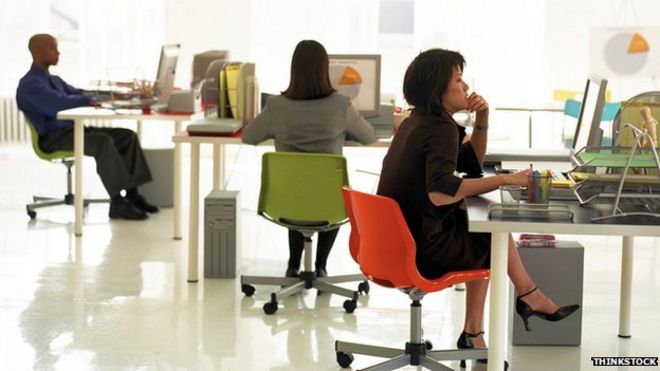Coffee addiction: Do people consume too much caffeine?
By Jon KellyBBC News Magazine, Washington DC
US officials are investigating the safety of caffeine in snacks and energy drinks, worried about the "cumulative impact" of the stimulant - which is added to a growing number of products. Is our tea and coffee-fuelled society too dependent on the world's favourite drug?
The bubbling kettle, the aroma from the mug, the first bitter mouthful of the morning.
It's a ritual without which the working day would be, for millions of people, frankly horrifying.
Caffeine is, according to New Scientist, the planet's most popular "psychoactive drug." In the United States alone, more than 90% of adults are estimated to use it every day.
But now even the US - home of Coca-Cola, Starbucks and the 5-Hour Energy shot - is questioning the wisdom of adding it to everyday foodstuffs like waffles, sunflower seeds, trail mix and jelly beans.
In a statement, the Food and Drug Administration (FDA) highlighted the "unfortunate example" of Wrigley chewing gum producing packs of eight sticks which each contained as much caffeine as half a cup of coffee. Subsequently, Wrigley said it would "pause" production of the product.
Continue reading the main story
How healthy is your coffee?
"On the plus side, coffee is known to be packed full of antioxidants, which stop other molecules oxidising and producing free radicals.
"Women who drink two or more cups of coffee a day are less likely to get depressed, other research suggests.
"However previous studies have linked high caffeine intake to raised cholesterol and short-term high blood pressure."
The agency is also looking at highly-caffeinated energy drinks, and said it was concerned about the "cumulative impact" of adding stimulants to products.
According to the US Substance Abuse and Mental Health Services Administration, the number of people seeking emergency treatment after ingesting energy drinks doubled to more than 20,000 in 2011.
However, the energy drink industry says its products are safe and insists there is no proof of a link with any harmful reactions.
There have been documented cases of fatal overdoses caused by "caffeine toxicity", though these are very rare. Scientists at Johns Hopkins University, studying its addictive properties, found that withdrawal symptoms included tiredness, headaches, difficulty concentrating, muscle pain and nausea.
But there is far from any kind of scientific consensus that caffeine use is harmful. A recent study by the Harvard School of Public Health suggested that "coffee drinking doesn't have any serious detrimental health effects" and that drinking up to six cups a day was "not associated with increased risk of death from any cause".
In moderation, caffeine may have some positive effects. Research suggests it could be associated with a reduced risk of prostate cancer and breast cancer. A recent study linked drinking coffee and tea with a lower risk of type two diabetes.
As a result, the FDA has pledged to "determine what is a safe level" of caffeine use.
The agency's move has been welcomed by those who fear caffeine is already encroaching too much into our daily lives - often in products where it may not be expected.
"Many people just aren't aware of how much caffeine they are taking," says Lynn Goldman, dean of the George Washington University School of Public Health and Health Services.
As a result, she says, they could unwittingly create problems for themselves with insomnia, indigestion, or their blood pressure.
It's especially worrying for parents, who can find it hard to regulate their children's intake.
| Beverage | Caffeine (mg) | Quantity |
|---|
|
|
Coffee
|
77-150
|
6oz/170g
|
Tea
|
40-80
|
5oz/142g
|
Coca-Cola
|
34.5
|
12oz/340g
|
Pepsi
|
38
|
12oz/340g
|
Red Bull
|
80
|
8.3oz/235g
|
But challenging the hegemony of caffeine may be a difficult task on a planet that consumes 120,000 tonnes of the substance per annum.
"We think that, when used in moderation, caffeine doesn't pose a risk," says Sanna Kiuru, a senior officer at Evira, the Finnish food safety authority. "It's mainly adults who drink coffee, not children. For us the levels are quite moderate."
Even buzz-loving Finns have been troubled by the rise of stealth stimulants, however.
"We have been concerned about the rise in caffeine in different foods," says Kiuru. Highly-caffeinated energy drinks in Finland are obliged to carry warning labels - a practice that will be extended across the EU from 2014.
For most caffeine consumers, its chief benefit is that, by stimulating alertness, it helps you get more done.
This is a trait that makes it unusual among recreational substances, says Stephen Braun, author of Buzz: The Science and Lore of Alcohol and Caffeine.
"Its appeal is that it helps us earn more money," he adds.
"What makes it different from other drugs is that it's used as a productivity tool - not for pleasure, like cannabis, or as a relaxant, like alcohol."
Perhaps the closest analogy is with coca leaves, chewed by labourers to give them extra energy in countries like Peru and Bolivia.
It's no coincidence, Braun believes, that caffeine's popularity boomed in Europe at the dawn of the industrial revolution, when the race for ever-increased productivity accelerated.
Many of history's creative minds have also been associated with some truly epic feats of caffeine consumption.
According to one biographer, the French novelist and playwright Balzac drank as many as 50 cups of coffee a day. "Were it not for coffee one could not write, which is to say one could not live," he once insisted.
For seven years, the film-maker David Lynch ate at the same Los Angeles diner every day, drinking up to seven sweetened cups of coffee "with lots of sugar" in one sitting, which he said would guarantee that"lots of ideas" arrived.
Ludwig van Beethoven was said to have painstakingly counted out exactly 60 coffee beans per cup when he brewed coffee.
Perhaps the most well-publicised recent tales of caffeine excess featured the somewhat less critically revered singer Robbie Williams, whoreportedly consumed 36 double espressos and 20 cans of Red Bull a day.
It is the routine task itself, as much as the stimulant properties of caffeine, that makes the process so significant, Mason Currey, author of Daily Rituals: How Artists Work.
"A lot of artists use the process of making the coffee as a gateway to the creative process," he adds.
"You need to get into the right mindset to do that sort of work, and the preparation ritual provides a focus."
 Does the very ritual of preparing caffeinated drinks help minds focus?
Does the very ritual of preparing caffeinated drinks help minds focus?
But attempts to clamp down on the spread of the substance have historically proved futile.
In 1911, the US government sued the Coca-Cola Company, on the basis that the caffeine in its drink was "injurious to health", but Coca-Cola prevailed in the courts.
One problem with attempting to regulate the substance, says Braun, is that it affects everyone in differently - people's varying physiologies and metabolisms making it impossible to prescribe a "safe" limit that works for everyone.
"Ultimately, you have to become your own scientist - there isn't an alternative to careful self-experimentation," he says.
Most people are likely to have ascertained by adulthood how much, or little, tea or coffee they can tolerate at a time.
But critics say this doesn't apply to energy drinks and caffeinated foodstuffs, whose effects are arguably more difficult to judge.
However profitable these products may prove for their manufacturers though, Currey suspects they well never acquire the mystique of coffee and tea.
"There's something that's not quite as special and evocative about them," he says.
"Buying an 5-Hour Energy drink from the 7-Eleven [convenience store] doesn't have the ambience of brewing a cup of coffee. I can't imagine future biographers of great artists and writers describing this stuff in the same way."
Additional reporting by Mark Bosworth in Helsinki











